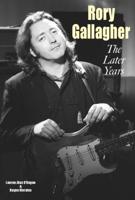Publisher's Synopsis
"People may say that I couldn't sing. But no one can say that I didn't sing." Despite lacking pitch, rhythm or tone, Florence Foster Jenkins became one of America's best-known sopranos, celebrated for her unique recordings and her sell-out concert at Carnegie Hall. Born in 1868 to wealthy Pennsylvanian parents, Florence was a talented young pianist but her life was thrown into turmoil when she eloped with Frank Jenkins, a man twice her age. The marriage proved a disaster and, in order to survive, Florence was forced to abandon her dreams of a musical career and teach the piano. Then her father died in 1909 and, newly installed in New York, she used a considerable inheritance to fund her passion. She set up a prestigious amateur music club and began staging operas. Aided by her English common-law husband, St Clair Bayfield, she worked tirelessly to support the city's musical life. Many young singers owed their start to Florence, but she










